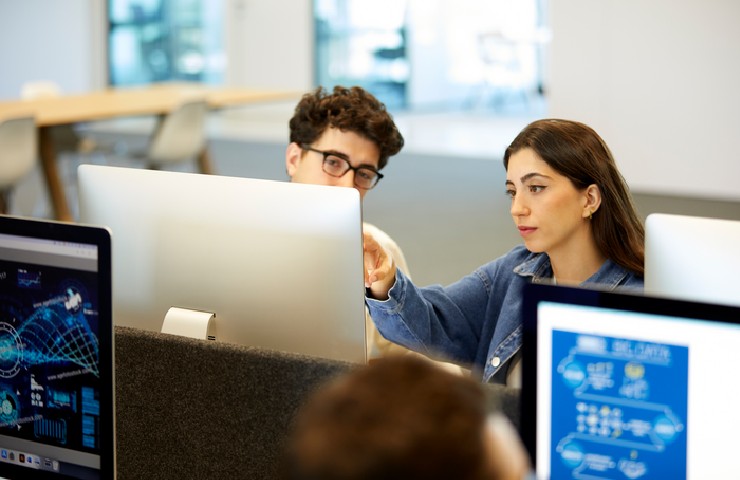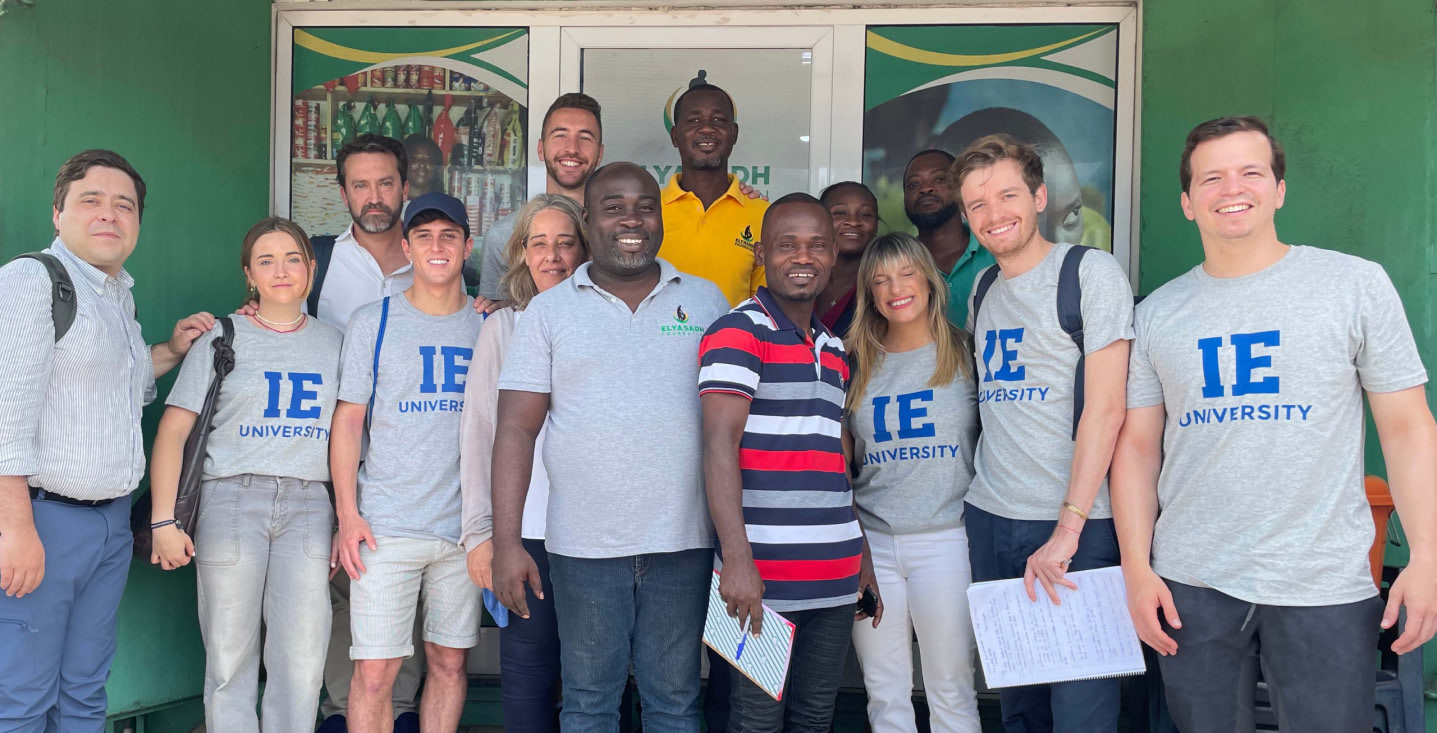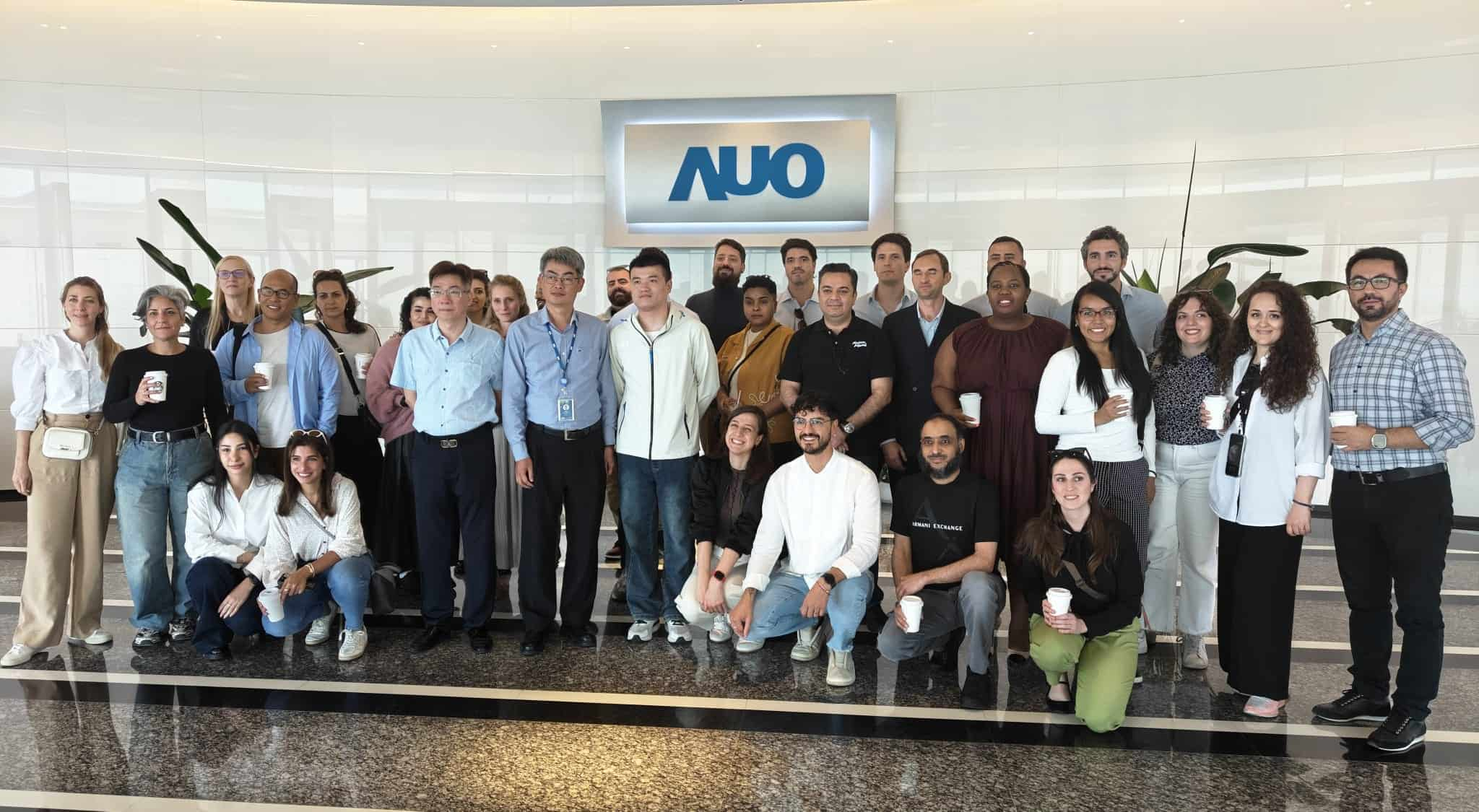22/12/2022
With industries and their needs constantly changing in a business world that’s digitalizing in almost every aspect, students need different skills and knowledge to stand out as they enter the labor market. IE Business School’s Master in Digital Business & Innovation bridges the gap between tech and business and equips students for tomorrow’s workplace. We spoke to the Vice Dean of Tech Programs at IE Business School, Manuel López Martín de Blas, about the ever-evolving program.
Traditionally, companies have been set up with a gap between the business and technology sector. Those who love technology have had little knowledge of what those in business do, and vice versa. But with technology imbued in everything we do now, the two can no longer stay separate. Higher education now has to prepare students for careers that never existed before; hybrid jobs in hybrid roles requiring hybrid skills.
“We need people who really understand the capabilities of technology, and how these capabilities can help business to grow”, Manuel López Martín de Blas told us.
Entirely new roles have arisen in areas like business development, digital strategy and business models, innovation management, knowledge management and so on. But there’s also been a reinvention of existing roles. Manuel cited project management as an example.
“The traditional project manager no longer works with a classical methodological waterfall,” he pointed out. “They must now use critical and agile thinking, and a problem-solving approach. They need to be focused on complicated and sophisticated ecosystems. It’s a reinvention of roles with heavy digital components on top of that.”
That’s what the Master in Digital Business & Innovation addresses.
Levels of digital transformation
When it comes to companies adopting technology, Manuel identified three levels of digital transformation: digitization, digitalization, and digital transformation. Many companies will start using technology and implementing it into their everyday tasks without particularly defining an overarching strategy. Other companies will move to the next level, leveraging technology in their business but fundamentally doing the same thing with some incremental evolution. The last level, which the program immerses students in, is digital transformation.
“It’s a holistic approach to reinventing your strategy with a strong focus on the digital environment, with a clear value proposition that triggers the holistic change in your business model uncovering new opportunities. It requires a reinvention and optimization of your business processes, of how you reach your potential customer base through new strategy on customer experience, with data coming from multiple sources and using it for decision and change; upskilling your internal talent and reorganizing your organization to bring open innovation a reality, being able to create complex collaboration ecosystems, using top-notch technology to make this possible.”
An adaptive approach
We consider technology a key enabler for digital transformation, but not the only one. Technology’s very nature means it’s always changing, so teaching it becomes a process of seeing the value in what’s there now, while acknowledging that it will become obsolete soon and we need to restart the process. Manuel recalled, just four or five years ago, telling a cohort that everything he was teaching about technology would probably be obsolete by the time they graduated.
“So,” he said, “we investigate the value of the technology, but of course, this is changing in itself. For example, for next year, we’re talking about new linguistic programming, blockchain, metaverse, artificial intelligence, robotics or cyber security. But maybe two years from now, we’ll talk about something completely different. Our programs try to be liquid in a sense—we adapt to the skills that the market demands and companies need for success.”
A direct response to current needs
Manuel emphasized how the Master in Digital Business & Innovation is a direct response to current market needs. Firstly, it’s created for students to upskill, and secondly, to ensure that this investment in their education has a return—to get the best jobs available.
“We’ve done thorough research on job ads, and found that what companies are asking for is key skills like management, data strategy, data business models and innovation management, among others.”

At IE Business School, this information is used to ensure that programs are completely up to date with companies’ demands.
“Our plan is to do the same exercise every year. If we can ensure our students have a full experience, it’s going to have a return right after they leave our programs,” he explained.
Graduating with transversal skills
Students of the program walk away with more than just current knowledge.
“We want to develop soft skills like leadership, how to work in high-performing teams, critical thinking, problem solving, negotiation, influence and consulting,” said Manuel. “Those skills are transversal, so you’re going to need them regardless of which company you’re going to work for.”
Coupled with these soft skills, the course aims to teach the hard skills that are in no less demand from modern employers. How a company can thrive in a digital ecosystem?, How I can create a successful digital business?, what is the best technology for my organization?, those will be answered throughout the Master.
“Corporations are complex ecosystems, where you need negotiation, managerial and personal skills,” said Manuel. “You need to be able to lead a high-performance engineer, for example, or be able to solve complex problems and persuade people to take your position. We equip our students with everything they need to ensure their voice will be listened to. They will be considered a valuable asset for their organization, not only a number.”
Real practitioners
A key facet of the program is that the program is taught by highly experienced sector professionals. They come from global companies like Mckinsey, Accenture, BCG, Novartis, Sonai, Inditex, Banco Santander, Google, Meta, successful start-ups, etc. As Manuel said: “You name one, and we likely have a subject in which we’re dealing with that company or the professor works there.”
“Using real practitioners gives students exposure to real scenarios they may face,” he told us. “They aren’t going to tell you to open your book to chapter three. They’re going to share their own professional experiences and the situations they’ve faced. They’ll say things like, ‘I used to work in that company, and we faced A, B and C. Tell me, given this challenge, how would you solve that?’”
What students need
Finally, Manuel described the characteristics that someone considering embarking on the program will need.
“Firstly, an open mindset. Secondly, resilience.”
He concluded that IE Business School provides a professional and immersive educational experience, even introducing the concept of Metaverse in the student learning experience, and expectations of students’ capabilities are therefore high.
“We’re going to help them, but we want brilliant students with us—people who strive to have an open mindset, can collaborate and are resilient under stress. More importantly, we want people who want to change the world. I would tell my students; everything is digital today. And this program will equip you to survive, thrive and succeed in this digital world.”








